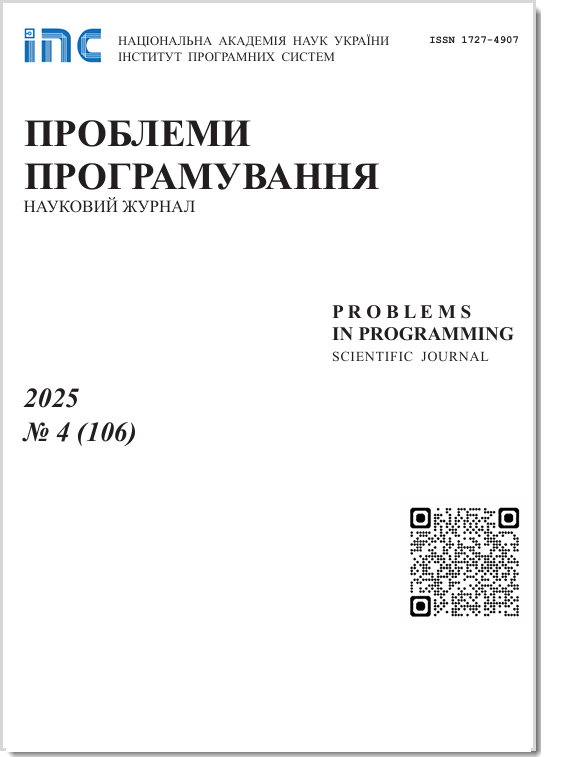Application of coevolution strategy to solve the problem of autonomous navigation trough the maze
Abstract
This study explores the use of coevolutionary methods to address the challenge of navigating through complex mazes using autonomous agents controlled by artificial neural networks (ANNs). It underscores a critical impediment to algorithmic optimization: the close interdependence between the task's goal and the objective function used for optimal solution discovery. The task's goal is clear—identify the most efficient route through the maze. However, the objective function's formulation is more complex. In complex maze layouts, numerous deceptive areas may appear proximate to the exit but culminate in dead ends. Consequently, an elementary objective function that merely gauges the proximity to the exit can encounter numerous local optima within this deceptive search space, hindering the search for optimal solution. As maze complexity increases, such an objective function inevitably becomes ensnared in a local optimum, rendering the navigation issue unsolvable. To counteract this, the study proposes a coevolution strategy involving a population of decision-making agents and a population of objective function candidates. This approach diverges from prior research by incorporating the NEAT algorithm to steer the coevolution of both populations. Additionally, the Novelty Search (NS) method was suggested to optimize the search within the potential solution space, favoring the most novel solutions. The paper details the mathematical framework for crafting the objective function template, which integrates the novelty value of the discovered solution and its distance from the maze's exit. This framework serves as the foundation for defining the genomes of the organisms — candidates for the objective functions. For comparison with preceding works, an experiment was conducted to evaluate the efficacy of the proposed coevolution method in resolving the problem of navigation within a complex maze environment.
Prombles in programming 2024; 2-3: 263-270
Keywords
Full Text:
PDF (Українська)References
Iaroslav Omelianenko. 2023. Simulation of the autonomous maze navigation using the NEAT algorithm. Problems in programming 4, (2023), pp. 76-89. CrossRef
Iaroslav Omelianenko. Hands-On Neuroevolution with Python: Build high-performing artificial neural network architectures using neuroevolution-based algorithms. Birmingham, UK: Packt Publishing Ltd, 2019. ISBN: 9781838824914, 368p.
Joel Lehman and Kenneth O Stanley. 2010. Revising the evolutionary computation abstraction: minimal criteria novelty search. In Proceedings of the Genetic and Evolutionary Computation Conference (GECCO-2010). ACM, pp. 103-110. CrossRef
Joel Lehman and Kenneth O Stanley. 2011. Abandoning objectives: Evolution through the search for novelty alone. Evolutionary computation 19, 2 (2011), pp. 189-223. M. Sipper, J. H. Moore and R. J. Urbanowicz, "Solution and Fitness Evolution (SAFE): A Study of Multiobjective Problems," 2019 IEEE Congress on Evolutionary Computation (CEC), Wellington, New Zealand, 2019, pp. 1868-1874. CrossRef
Kenneth O Stanley and Risto Miikkulainen. 2002. Evolving neural networks through augmenting topologies. Evolutionary computation 10, 2 (2002), pp. 99-127. CrossRef
Iaroslav Omelianenko. Creation of Autonomous Artificial Intelligent Agents Using Novelty Search Method of Fitness Function Optimization. NewGround LLC, Sept. 2018.
Iaroslav Omelianenko. "Autonomous Artificial Intelligent Agents". In: Machine Learning and the City. John Wiley Sons, Ltd, 2022. Chap. 12, pp. 263-285. ISBN: 9781119815075. CrossRef
Omelianenko, Iaroslav (2023). The GoLang implementation of NeuroEvolution of Augmenting Topologies (NEAT) algorithm (v4.0.2). [Computer software]. Zenodo.
Omelianenko, Iaroslav (2024). The GOLang implementation of NeuroEvolution of Augmenting Topologies (NEAT) with Novelty Search optimization (v4.0.2). [Computer software]. Zenodo.
DOI: https://doi.org/10.15407/pp2024.02-03.263
Refbacks
- There are currently no refbacks.









